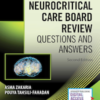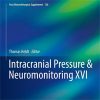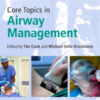Extracorporeal Cardiopulmonary Resuscitation (ECPR) in Adults
link.springer.comRates of survival with functional recovery for both in-hospital and out-of-hospital cardiac arrest are notably low. Extracorporeal cardiopulmonary resuscitation (ECPR) is emerging as a modality to improve prognosis by augmenting perfusion to vital end-organs by utilizing extracorporeal membrane oxygenation (ECMO) during conventional CPR and stabilizing the patient for interventions aimed at reversing the aetiology of the arrest.
Implementing this emergent procedure requires a substantial investment in resources, and even the most successful ECPR programs may nonetheless burden healthcare systems, clinicians, patients, and their families with unsalvageable patients supported by extracorporeal devices.
Non-randomized and observational studies have repeatedly shown an association between ECPR and improved survival, versus conventional CPR, for in-hospital cardiac arrest in select patient populations.
Recently, randomized controlled trials suggest benefit for ECPR over standard resuscitation, as well as the feasibility of performing such trials, in out-of-hospital cardiac arrest within highly coordinated healthcare delivery systems.
Application of these data to clinical practice should be done cautiously, with outcomes likely to vary by the setting and system within which ECPR is initiated.
ECPR introduces important ethical challenges, including whether it should be considered an extension of CPR, at what point it becomes sustained organ replacement therapy, and how to approach patients unable to recover or be bridged to heart replacement therapy.

















